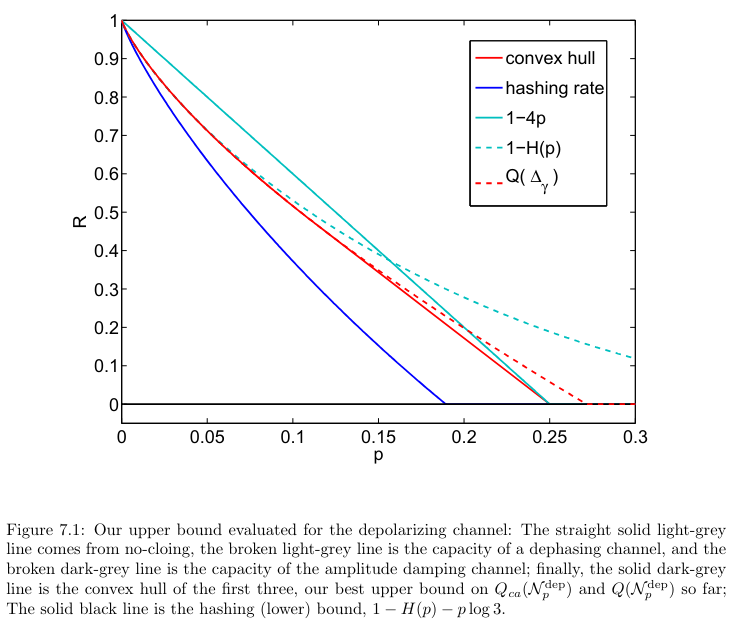Let's consider that each qubit in the lab faces a single-qubit depolarizing channel $\mathcal{N}(\rho)=(1-p) \rho + p \mathbb{I}/2$.
Is there a theoretical result indicating the largest value of $p$ such that quantum error-correction can completely suppress the effect of the noise asymptotically (by encoding the qubit in logical qubits composed of sufficiently many physical qubits).
In different terms: is the maximum theoretical threshold to fight depolarizing noise known?
I am assuming that the implementation of error-correction is noiseless here.

